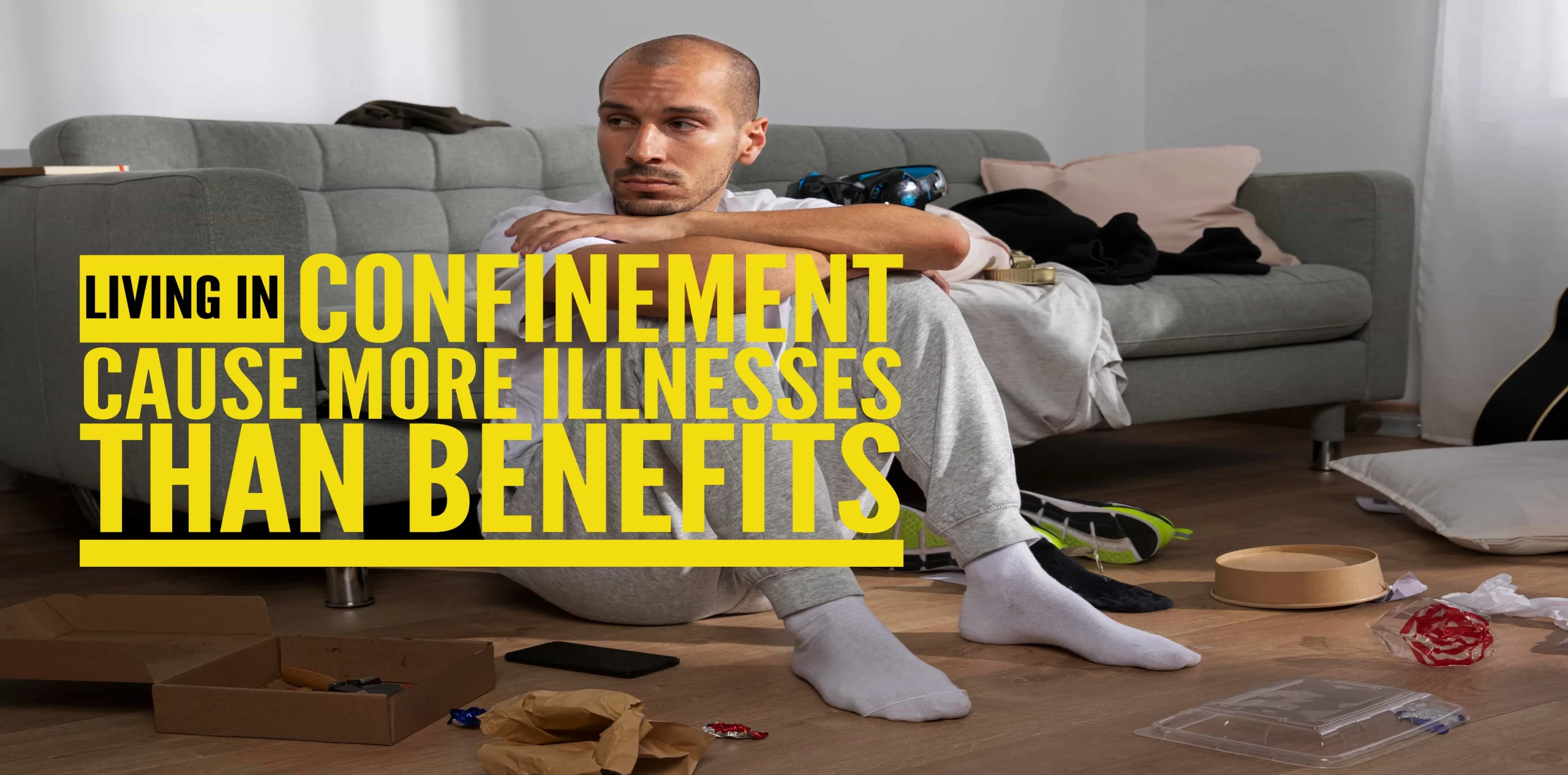
Have you ever heard of the ‘hikikomori’? It is a phenomenon in Japan where teenagers stay home for months, or even years, without contact with the outside world.
Jack is a lonely person who prefers to stay home, locked in three years ago. But this is not healthy for Jack. He is missing out on everything that makes life worth living, like seeing the sun, feeling the breeze on his skin, and being around other people.
Is it reasonable to stay home all day, like the Hikomori and Jack? What are the causes?
There are psychological reasons why people want to be kept in a room. The symptoms of low self-esteem, fear of failure, and social relationships are not to be confused with laziness, especially if this situation lasts many months.
In addition to this self-detention, there are also phobias or so-called “clinomanias”, such as the desire to stay in bed to feel safe and thus not deal with what is outside a room. The bed is like a lifeline.
Staying confined within four walls can increase anxiety. The cause is a lack of natural light, which is essential for regulating our biological clock and is responsible for appetite, mood, and sleep, among others.
Unlike beaches or deserts, green spaces have a calming power and are essential for our well-being. Recently, studies have shown that spending time in the forest improves mood and mental health, and reduces feelings of pain.
As with meditation, we were getting out of the house to walk in contact with nature, which helps us relax and clear our heads. These two benefits too benefit us to be efficient, hyper-connected, and always alert on several fronts simultaneously.
1 What are the consequences? Living in a confined space increases the risk of getting sick. Researchers at the University of Colorado have found that exposure to electric lighting alone can cause sleep disorders, anxiety, depression, obesity, and vitamin D deficiency. These risks affect people with psychological disorders and those who work from home. Doctors recommend you spend at least 45 minutes outdoors, preferably in the morning and in contact with nature.
2 Boost your immune system. Regular physical activity is vital for us. Our minimum daily workout consists of walking to the subway or bus and climbing the few floors that separate us from our office. The recommendation of doctors is to walk for at least 30 minutes a day outside. This practice strengthens our immune system and helps us fight infections. Furthermore, a little sport can produce endorphins, the happiness hormones.
3 To sleep better. A lack of sunlight often causes insomnia. Natural light helps regulate our biological rhythms (circadian rhythm) and thus our sleep. Especially in the morning, when the lighting level is more intense, it is good to expose yourself to sunlight.
4 Calming negative thoughts. Shutting down produces more or less harmful thoughts. We repeat our negative thoughts, and pessimism leads to depressive phases. Within four walls, we also feel boredom, a monotonous, uninteresting life. To return to normality, contact with nature helps us relax and clear our heads.
5 Loving others. Isolation activates the same area of the brain activated when we suffer physically. Loneliness leads to negative and energetic emotions (sadness, frustration, anger, despair). The only solution is to get out of the house to “socialize,” talk to other people, harvest friends, and “love” others and life itself.
Does the weather play with our mood? Many believe the weather conditions our morale and attitudes. It is true that when the sky is clear and light blue, we have more positive ideas. Similarly, we would like to stay under the warm quilt when it is raining or cold.
We are more sensitive to the weather when we suffer from depressive disorders, due to a lack of light and falling temperatures. Psychologists then speak of Seasonal Affective Disorder (SAD), the seasonal emotional disorder: fatigue, lack of interest in daily activities, decreased concentration, compulsive need to eat sugar (especially chocolate), weight gain, etc. But winter passes, and spring arrives, perhaps the best season of the year.
Attention. It is essential to ask for help from a doctor, especially a psychologist or a psychotherapist, to understand the causes of this attitude and find the best therapy for a normal lifestyle.
